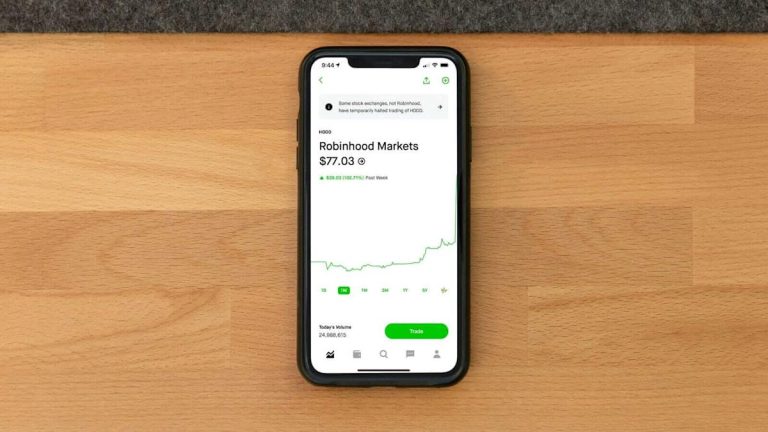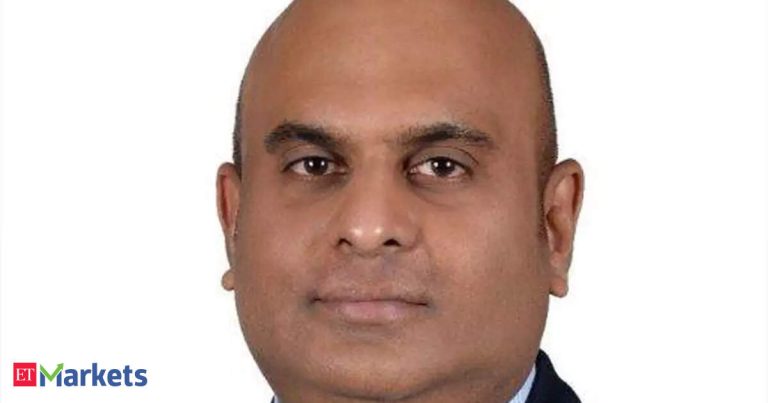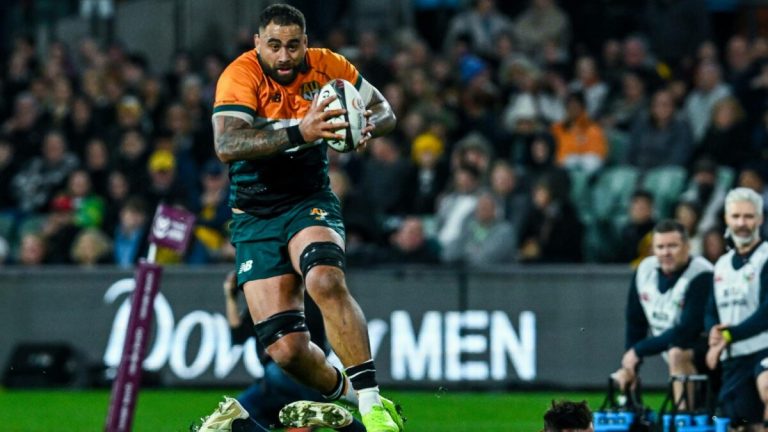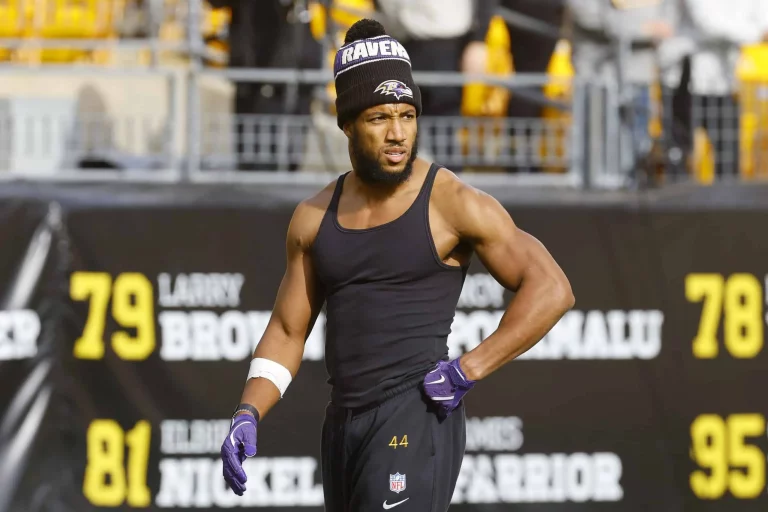MBW’s World’s Greatest Managers series profiles the best artist managers in the global business. Sharon Osbourne is a star in her own right, but for more than four decades, she has also managed her husband, and true rock revolutionary, Ozzy. Here she discusses that relationship, their success, and Black Sabbath going out on a high in July. This interview originally appeared in the Q1 issue of Music Business UK, printed in March. World’s Greatest Managers is supported by Centtrip, a specialist in intelligent treasury, payments and foreign exchange – created with the music industry and its needs in mind.
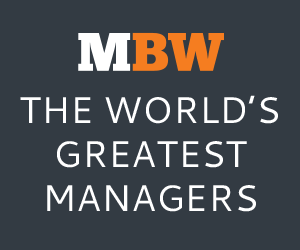
Let’s take this opportunity to settle one of the biggest debates in music.
Black Sabbath were the first heavy metal band. They are, thematically and sonically, pioneers. Very few acts scheduled to headline a stadium in 2025 can claim to have defined a genre of music and paved the way for over a dozen other musicians on the same line-up.
In July, Black Sabbath’s original four members return to their hometown of Birmingham, the birthplace of heavy metal, to play their final concert at Villa Park with support from giants of the metal world: Slayer, Metallica, Pantera, Lamb Of God, Mastodon and more.
According to the concert’s musical director Tom Morello, the final reunion of Ozzy Osbourne, Tony Iommi, Geezer Butler and Bill Ward, will be “the greatest heavy metal show ever”.
For Sharon Osbourne, Ozzy’s wife and manager of more than four decades, the planning of Back To The Beginning – as the charity event has been dubbed – is “very bittersweet”.
“It’s been our lives together for 45 years,” she says of hers and Ozzy’s storied careers in music. “It’s great, but it’s sad at the same time,” she adds of her feelings about the final show. “But it’s definitely time to say goodnight. It’s time for Ozzy to do whatever he wants and not have to plan anything or be anywhere at any particular time.”
After guiding heavy music’s original provocateur to solo megastardom, Sharon Osbourne built an empire across music management, festivals (Ozzfest between 1996–2018) and television (The Osbournes, The Sharon Osbourne Show etc). She’s also a best-selling author and was a judge on multiple series of hit talent shows America’s Got Talent and the UK’s The X Factor.
Osbourne was, in her own words, “born into the industry”.
She witnessed the birth of the rock‘n’roll business in London in the 1960s as the daughter of infamous music executive Don Arden – who worked with stars from Gene Vincent to Jerry Lee Lewis, and later Electric Light Orchestra, Black Sabbath and more.
“I just saw something in Ozzy. I saw that spark that he had. It was electric.”
“I watched my father go from an artist himself, to an agent, to a manager to running his own record label [Jet Records]. I worked for him for several years,” Osbourne says.
“I learned everything I knew from my father. I watched him make terrible mistakes, and I learned a lot of good things and also things that you just don’t do in the industry. I was like an apprentice. I learned it all from him, good and bad, because I definitely have my father’s temper, but I don’t take other people’s money!”
The first artist Sharon managed on her own was guitar player Gary Moore, but would later go on to manage Ozzy’s solo career by herself after his split from Black Sabbath in 1979. “I started with Gary, and I was doing day-to-day management for ELO at the time,” she explains.
“And I just saw something in Ozzy. I saw that spark that he had. It was electric. Ozzy would walk into a room, and everybody would look at him. In two minutes, he had everybody laughing on the floor. He was a very charismatic young man. I just believed in it.”
That belief manifested into significant success. Ozzy’s first solo album Blizzard Of Ozz (1980), featuring the classically trained late great Randy Rhoads on guitar and co-songwriting duties, has sold over six million copies worldwide, hit No.21 on the US album chart and included iconic tracks like Crazy Train and Mr. Crowley.
“It just exploded,” Sharon recalls of Ozzy’s transition from Sabbath frontman to solo star in 1980. “As soon as Crazy Train came out on the radio, it was just instant. Ozzy was blessed.”
Ozzy has since sold over 100 million albums worldwide across his work with Black Sabbath and his 13 solo studio albums. His most recent LP, the Andrew Watt-produced Patient Number 9 (Epic), hit No.3 on the US album chart and won the Grammy for Best Rock Album in 2023. He also won Best Metal Performance that year for Degradation Rules (feat. Tony Iommi).
Asked about the legacy she hopes to leave in the music business as she prepares for Ozzy’s last ever live performance, Osbourne responds: “I’m not important. Managers are on the coat-tails of their artists. It’s about what Sabbath leaves, and what Ozzy leaves. That’s the important thing.”
But first, Osbourne takes MBW back to the beginning of Ozzy’s solo career and weighs in on the modern music industry, superfans, big-money catalog deals and more…
How did the idea come together for Back To The Beginning?
Since Ozzy’s illness, which has been six years, he’s said his one regret is that he never got the chance to say goodbye to his fans and everybody that he’s ever worked with.
And then it was like, ‘Ok, how do we do this without Ozzy just performing for two-and-a-half hours?’, because Ozzy can’t perform for two-and-a-half hours anymore.

So then I thought of having all the bands he’s ever had relationships with perform and maybe do Sabbath songs and Ozzy songs. I started to ask really close friends, and they were like, ‘Sure, yeah.’
It became a celebration of the music. All the generations are going to be there that Sabbath and Ozzy have passed the torch down to. The only place that we could do it would have been Aston, because that’s where Ozzy was born and grew up, which is right where the Villa ground is.
There are two bands that we would have loved to have been there, but they couldn’t because they’re working that day. And that was Judas Priest, a local band, and Angus [Young] from AC/DC, because he’s always been a huge supporter of Ozzy’s.
Going back to your early career as a manager after Ozzy left Black Sabbath and you took over managing his solo career, what was your strategy for developing him as an artist?
Do you know what it was? Blind ignorance. It was like, ‘We’re gonna make it,’ And that’s it. We did whatever we had to do. In the beginning, when we were booking Ozzy in America, the album hadn’t even come out yet. Promoters were booking him without the success of his first album.
We were talking to people in the fall, and he would be planning to tour the [following] summer. It was a long wait for these promoters, and most of them were shitting because they [were] blindly booking him.
It was fun to see it all happen. I mean, so many dates went up on sale and just sold instantly. And all of the promises that you make to a promoter, ‘Don’t worry, we’ll promote the show. We’ll do every bit of promotion to help you sell out.’ And then it just exploded. It was very organic.

Blizzard Of Ozz obviously became a huge success. You’ve written about how the sound was more commercially accessible than some of the heavier Sabbath music. Apart from the songwriting and musicianship, how much of the lore around Ozzy’s stage persona at that time played into the success of his career in those early days? And how challenging was it as his manager to handle the business side of it all?
Oh, yeah. Well, it just went from, ‘Ozzy’s the wild man’, to ‘Ozzy’s insane and kills animals’ and all of that shit. And you know all the stories: Ozzy’s cut his finger; no, he bit the head off a bat!
And so it just kind of spread. It had a life of its own. It just got bigger and more exaggerated; anything he did at that time in the industry.
We were told by our record company: one more incident in their building, one more misbehaviour, and he would be dropped. It was very funny to watch it all play out!
So that was CBS, before they became Sony?
Yeah, and the head of legal [at CBS] called me and warned me. We used to laugh because it was so funny, going into radio stations and gigs. It was just hysterical, because people take everything literally.
Then, of course, at that time, Judas Priest had the same thing going on about the lyrics, the content of the album. You know, it’s got to be [censored]. Can you imagine today if you had to [censor] an album, every album would be fucking [censored]!
Ozzy ended up having a really long association with CBS and then Epic after CBS was sold to Sony in 1988. You presumably had a good relationship with them over the years after that?
Yeah. The thing was, the heads of the companies would change, but Ozzy’s only ever been on Epic as a solo artist. Well, Sony, and the same as Sabbath, were only on Warner Bros. We don’t like chopping and changing. It’s been the same with agents and people who work with us.
It’s the same crew of people. I’m not one of those who will go and do an album here and an album there, and shop every record company.
What’s some of the best music business advice you’ve ever been given?
Oh, God, hold on to your publishing! Never let your publishing go, until you get to the stage where you think you want to bail, and then you sell it all for a fortune.
You look at where your songs could end up; you could get a couple of million each time your song is used in an advertisement.
Other people could cover your song and have a hit with a song that wasn’t a hit for you. It’s something which, now, I know a lot of artists, they go in, and they want deals, [and the] record companies want their publishing. It’s like, ‘Fuck you, no way.’
You mentioned those who choose to sell their catalogues for a fortune. What do you think about the trend of big money deals struck by legacy artists and would you ever consider that for Ozzy’s music?
Everybody’s life is different. Artists who have worked and built a great body of work, it’s like, ‘Hey, sell it. It’s your big payday. Go for it.’ And there’s some that want to say, ‘No, I want to hand it over to my children.’

It’s whatever is right for you at that time in your life. But if you had 100% of it, you can imagine what it would be worth, instead of giving it to a publisher, and you get your whatever it is, 40-50% and they still retain the rest. It’s like, ‘Fuck them’, because publishers usually just sit there and wait for it to happen.
Have there been any deals that you either regret making or regret not making during your career?
Yeah, the biggest mistake I ever did with Ozzy was that they asked him to go and read for Pirates Of The Caribbean. I said, ‘Fuck off’. Can you imagine? He would have been so perfect in it.
Ozzfest became a big challenger in the festival market in the 1990s. I’ve read you came up with the idea because you approached Lollapalooza to book Ozzy, and they said no. What happened?
Yes, that’s right. I thought it would be so much fun [to book] him [at Lollapalooza]. And they were like, ‘No, not at all. Not for us.’ It gave me the idea of, ‘Fuck it [then], we’ll do our own metal festival’, because it didn’t exist. There were no touring metal festivals. It was the beginning; all the rest [followed]. And I’m so proud of that. We did it first, and it was an opportunity for so many younger bands to play in front of a huge crowd.
Were all the bands, labels and agents on board with the idea straight away? Or did it take some convincing?
It took a little convincing for the first one. We actually started out by doing two in one week. And everybody said, ‘Come back next year. This is huge. This is fantastic.’ And it just built and built and we did it for 20 odd years. It was amazing.
How did you approach Ozzy’s touring and live deals, especially in the early years?
We had a policy that Ozzy was never going to open for anyone. If you go out with that mindset, you better know what you’re doing.
“We had a policy that Ozzy was never going to open for anyone.”
You don’t have the cushion of saying, ‘It didn’t sell out. It’s not me, it’s them, it was badly run, and the sound system was shit!’ You’ve got to know what you’re doing because it all comes down to you.
What can the wider music business learn from rock and metal when it comes to superfans?
Longevity. You look at what goes on in our industry today, and you think, I wonder if I’m going to be hearing this music in five years’ time? It’s very disposable. You look at all the artists, and you go, ‘Ok, who’s going to be like the next Diana Ross that will be still relevant when they’re in their late seventies?’
I think half of them won’t be, I really do. I don’t think they could stand the test of time. Who is going to be the next Madonna from this lot that’s out there right now? Who’s going to be the next Rolling Stones?
Those bands you were speaking about, as far as merch goes, their logos, their names, will be on T-shirts decade after decade.
Are we gonna see a Coldplay T-shirt in 50 years walking down the road like the Stones? You know that tongue and lips will go on forever. It’s like, which one of you lot today is going to be that?
But that’s what artists have to think of with their career. It’s not just now, now, now. It’s about the future. It goes so quick. Before you know where you are, you’re in another decade, and it’s like, ‘Am I still relevant? Am I doing too much?’
I think that a lot of the artists today are being badly managed, badly advised [and] doing too much. [They] don’t know when to take a break, take a breath, back off for a year, or two years.
On that note, do you think there is enough long-term artist development in the music industry, across management, labels, publishing?
There is no development currently at record labels. They take everything. Record labels developing [artists] doesn’t exist. A&R departments just go on the internet. That’s it. They’ll take your publishing, your merchandise and everything else, and all they do is press and distribute and stream you.
Most of the record companies own the streaming anyway and all of this about, ‘Oh, I’ve got a billion streams, it’s amazing.’ Well, you’re getting less than a fucking penny for a stream. It’s absolutely bastardising an artist’s music.
How does this all impact the role of the manager in terms of discovering and developing artists, and the risk that managers take?
Listen, managers in my day would support an artist so they didn’t have to support themselves, so they were able to write and hone their craft. You would literally put them in an apartment or a house, if it was a band, and you’d pay everything. You would invest your own money in an artist. That doesn’t happen today!
It’s a whole different way of breaking artists because of social media. You get a lot of managers out there wheeling and dealing, and a lot of managers out there that also [act as] agents, and lie about the fact that they don’t own the agency because it’s illegal to do that.
Artists used to have to gig. You used to learn your performance skills by constantly gigging to build your fanbase. And you don’t have to do that anymore. You can do it from your back garden. Just sit there and play to the dogs. And if you’re good, people pick up on it, and it’s instant.
The years of trailing around the world, trying to break territories. It’s just instant now, which is fantastic for the artists, but then you have to wait for the artist to develop their performance skills, because they didn’t have to tour and know how to work with an audience and all of that.
Even mic techniques, you get young kids today that don’t understand how to even work with a microphone. They just stand in front of it.
If there was one thing you could change about the music business, what would it be and why?
The word perpetuity should be taken out of the music industry. No record company should be allowed to take an artist’s work and own it for life. No publisher should be able to do that. Look at it this way, you go to a bank because you want to buy a house, so you get a mortgage. Now you finish paying that mortgage and then the bank says to you, ‘You’re never going to own your house.’

That is the thing that happens to an artist. You go to a record company, they’ll upfront you the money to make an album. If it’s a hit, you pay back the record company, and they’ve got all their money back that they gave you for making that album, and then they owned it for life. Now, how does that work? You’ve paid them back. Everybody’s made a profit, the artist, the record company, but yet you still own my work.
Have you not seen deal terms improve a lot from the 1980s to the 1990s to the 2000s to now?
Yes, of course. But you will always get kids that come along who have got the dream. They don’t care about the money, they don’t care about anything. They don’t understand the business. They just want to release their music.
They want to be a true artist. Record companies [and] publishers will always take advantage of them. Look at all these boybands that have come and gone in the past. Look at how they were all abused and taken advantage of. It can be a really tough business.
What does the future hold for the traditional record industry?
They’ve all got to stop being so arrogant and realise that it is very easy for artists to do it themselves. They’ve just got to think for their futures. Some of my best friends are still at record companies. But you look at what [some] record companies are doing today, they’re hideous.
I’ve heard certain people [at] some of the biggest record labels in the world turn around and say, ‘We have to fuck the artist before they fuck us.’
It’s such huge instant money that you can make in this industry, and it’s very cut-throat. But more power to those kids that want to go out there and do it all themselves.




